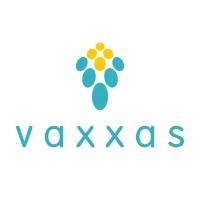
Vaccines Development: Vaxxas and CEPI Advance $4.8M Program for Needle-Free mRNA
Vaxxas, a clinical-stage biotechnology company focused on commercializing its innovative high-density microarray patch (HD-MAP) vaccination platform, today announced that the Coalition for Epidemic Preparedness Innovations (CEPI) has approved the advancement of a US$4.8 million (AU$7.2 million) program. The initiative aims to develop heat-stable, dried-formulation mRNA vaccines that can be delivered using Vaxxas’ needle-free HD-MAP technology.
Vaxxas, a clinical-stage biotechnology company known for its innovative high-density microarray patch (HD-MAP) technology, has announced the approval of a significant program to develop thermostable, needle-free mRNA vaccines. This initiative, backed by the Coalition for Epidemic Preparedness Innovations (CEPI), involves a US$4.8 million (AU$7.2 million) funding commitment to enhance mRNA vaccine formulations and optimize their delivery via the HD-MAP platform.

The approval follows successful preclinical results from Vaxxas, which demonstrated promising outcomes using a seasonal influenza antigen. The studies revealed that mRNA in lipid nanoparticles (LNPs) delivered through HD-MAP exhibited dose-dependent immunogenicity. Furthermore, the mRNA-LNPs were able to maintain stability for extended periods—at temperatures ranging from 2–8°C and 25°C for over 12 months, and at 40°C for at least one month. These findings are crucial, as maintaining vaccine stability in varying conditions is a significant challenge, particularly in low-resource settings.
In this next phase of development, Vaxxas will collaborate with SK bioscience, a leading global vaccine developer. Together, they will focus on advancing an mRNA vaccine for Japanese Encephalitis Virus (JEV) delivered via the HD-MAP technology, with the goal of moving toward a Phase I clinical trial. This collaboration will focus on optimizing the mRNA vaccine formulations, which will be assessed through both in vitro and in vivo preclinical studies. Vaxxas believes the advancements made with the JEV vaccine candidate can be applied across all mRNA vaccine antigens delivered by LNPs, offering a versatile platform that can be scaled for various vaccines.
A major barrier to the global accessibility of mRNA vaccines is their stringent cold-chain storage requirements, which can complicate distribution, especially in low- and middle-income countries or remote areas. The HD-MAP technology developed by Vaxxas is designed to address this issue by offering improved thermostability. With the ability to deliver vaccines that are stable at higher temperatures, Vaxxas’ platform reduces reliance on ultra-cold storage, lowering costs and complexities associated with current vaccine distribution.
In addition to its stability benefits, the HD-MAP platform is user-friendly, requiring less training for administration and even supporting the potential for self-administration. This ease of use could improve vaccination rates, particularly in areas with limited access to healthcare infrastructure.
“The success of this program could significantly expand global access to life-saving mRNA vaccines,” said David L. Hoey, CEO and President of Vaxxas. “Our HD-MAP technology offers a solution to the challenge of ultra-cold storage, enabling vaccines to be distributed and administered more efficiently, particularly in underserved areas.”
With this collaboration and its compelling proof-of-concept results, Vaxxas and CEPI are eager to push forward with the next stage of development. Dr. Raafat Fahim, Executive Director of Vaccine Manufacturing Supply Chain at CEPI (Acting), highlighted the importance of overcoming distribution challenges. “The tremendous success of mRNA vaccines in recent years provides the world with a powerful tool to combat global infectious diseases—if we can get them to the regions and people who need them most,” said Dr. Fahim. “Vaxxas’ technology could play a key role in addressing inequities in vaccine access by eliminating the need for ultra-cold storage, making vaccines more accessible globally.”
This marks Vaxxas’ second collaboration with SK bioscience. The companies are also working together on a project funded by the Wellcome Trust to advance a HD-MAP-based Typhoid conjugate vaccine candidate. Jaeyong Ahn, CEO and President of SK bioscience, expressed excitement about the ongoing partnership. “We are excited to extend our collaboration with Vaxxas. Their innovative HD-MAP technology has the potential to revolutionize the delivery of mRNA vaccines, addressing the cold-chain challenges that have historically hindered vaccine distribution,” said Ahn.
Vaxxas plans to move forward with this phase of the program in Q1 2025, advancing the development of thermostable, needle-free vaccines for a variety of infectious diseases.
About HD-MAP Needle-Free Vaccines
The Vaxxas HD-MAP is a small patch containing thousands of microscopic projections coated with a dried vaccine formulation. When applied to the skin using a proprietary applicator, the microprojections deliver the vaccine to immune cells just beneath the skin surface. This delivery system offers several advantages over traditional vaccine administration methods, such as improved stability, reduced need for cold-chain storage, and the potential for easier, more widespread use.
HD-MAP vaccines have demonstrated safety and tolerability in hundreds of trial participants. They have also been shown to induce immune responses comparable to or stronger than injected vaccines, often at lower doses. Furthermore, the ease of use and potential for self-administration could revolutionize how vaccines are delivered, potentially allowing vaccines to be sent directly to homes, workplaces, and schools, bypassing the logistical challenges associated with traditional vaccine administration methods.
About Vaxxas
Vaxxas is a privately held biotechnology company focused on enhancing vaccine performance with its proprietary HD-MAP platform. The company’s technology has already demonstrated success in several completed clinical trials, with ongoing studies in influenza, COVID-19, and pandemic influenza vaccines. Vaxxas is advancing toward commercialization with the support of partners such as the US Biomedical Advanced Research and Development Authority (BARDA).
Founded in 2011, Vaxxas originated from research at The University of Queensland (UQ) and was established as a startup with initial financing from OneVentures Innovation Fund I, Brandon Capital Partners, and UQ’s commercialization group, UniQuest. The company has since attracted additional investment from OneVentures and other venture partners, driving its progress toward bringing its revolutionary vaccine delivery platform to market.




